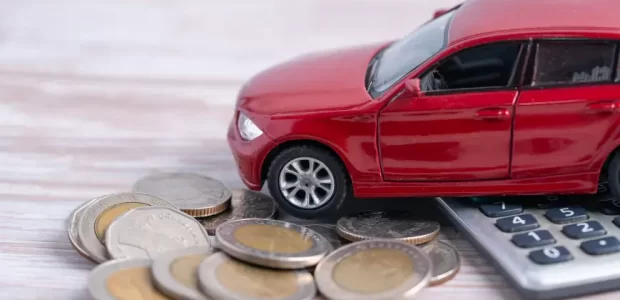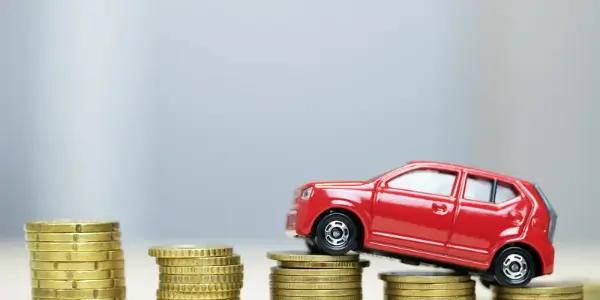
8 Comprehensive Cost of Car Ownership in [2024]

When buying a car, the price tag is just the beginning. The original cost of owning a car includes many hidden expenses. There are big factors that can make a car more expensive over time.
Depreciation slowly reduces your car’s value. Fuel costs go up and down based on how much and where you drive. Insurance, maintenance and unexpected fees like taxes and tolls add up too.
How can you plan for all these costs? And are there ways to save money? Keep reading to find out.
Key Takeaways
- Cars lose value over time that impacts long term expenses and resale value.
- Fuel prices fluctuate and driving habits affect fuel consumption and monthly budgets.
- Costs may vary based on driving record, car type and location. This also impacts the budget.
- Regular maintenance prevents costly repairs and keeps the car running efficiently.
- Loans and leases have different costs and conditions that influences monthly payments.
The True Cost of Car Ownership: More Than Just the Sticker Price
I discovered very shortly after purchasing my automobile that the sticker price was only the beginning. In the UK, having a car entails several extra costs. For instance, I would budget for insurance, which, based on your vehicle and driving history, might be pricey.
Fuel costs also add up fast, especially with changing market prices. I remember one month when fuel prices shot up and my budget took a hit.
Maintenance is another big one. Regular check ups are a must to keep the car running smoothly. I would go to get my car serviced annually to avoid bigger problems later.
Depreciation is something I did not think about at first, but it is real. The car loses value over time, which affects its resale price.
Considering all of these costs, automobile ownership requires careful budgeting. My own experience tells me that one should take these costs into account when buying a car.
Depreciation: The Hidden Cost That Eats Away at Your Car’s Value
Depreciation is a hidden cost that gradually lowers the worth of your car. Depreciation accounts for a sizable portion of the long term expenses of automobile ownership. You must comprehend the principles of depreciation if you wish to determine the value of your car.
Your car’s value depreciates over time, often rather quickly. A lot of individuals are not aware of this thing. You should include it in your monthly budget.
Fuel Expenses: How Your Driving Habits Impact Your Wallet
One major expenditure of having a car is fuel. Based on your driving habits and the kind of car you drive, they might change. My own experience has convinced me that our driving behaviors affect how much petrol we use.
For instance, you will burn more petrol if you accelerate fast or leave the engine running while parked. This implies that you’ll have to fill up the tank more frequently.
With fuel prices always changing such habits can make owning a car more expensive. Choosing a car that uses less fuel can help save money. The way you drive is also important.
I’ve discovered that over time, I may save money by being aware of my driving habits and making minor adjustments. For instance, I try to accelerate smoothly and avoid long idling periods.
In short, being careful about how you drive and picking a fuel efficient car can lower your fuel costs a lot.
Insurance Premiums: Protecting Your Investment
Although it is expensive, auto insurance is necessary to safeguard the vehicle. I now know that a few factors can affect rates. For example, my driving record made a big difference; keeping it clean saved me money.
The type of car I drive also mattered. When I had a luxury car, my insurance was higher. Where I live played a part too. In areas with more accidents or thefts, my insurance went up.
The coverage I picked also changed the cost. I chose extensive and collision coverage for more protection, but it was pricier. It’s something I pay for regularly, so I always plan ahead.
Maintenance and Repairs: Keeping Your Car Running Smoothly
I make sure my automobile has routine oil changes and brake checks. This keeps everything operating properly and keeps costly repairs out of my budget. If I skip routine services, the costs of owning a car can quickly go up. That’s why I budget for maintenance; it helps me manage what I spend on my car overall.
Unexpected repairs can strain my wallet, but regular check ups help catch problems early. For example, once I noticed a small oil leak during a routine oil change, which could’ve led to a bigger issue.
Financing Costs: Understanding the Impact of Loans and Leases
When I think about car costs, I can’t ignore loans and leases. Both options affect how much I pay over time.
The interest rates that affect my monthly payments if I decide to take out a loan, it will be my responsibility. However, leases often result in reduced monthly payments. They come with mileage limits and extra fees.
Comparing these financing options is key. It helps me manage my money better. Knowing all these details helps me pick the best choice for my budget and plans.
Calculating loans and leases is a crucial step in determining the actual cost of automobile ownership.
Taxes, Fees and Tolls: The Hidden Costs of Car Ownership
When I budget for a car, I can’t forget about taxes, registration fees and tolls. These costs can add up and change depending on where I live. Taxes are usually a percentage of the car’s value.
Registration fees cover things like license plates and yearly renewals. Tolls can be a big expense if I drive on toll roads often.
Once, I bought a car without thinking about these extra costs. I was shocked when I got the bills. Now, I always check these fees before buying a car. It’s important to know all the costs so I don’t get surprised later.
Offsetting Expenses: Strategies to Reduce the Car Ownership Cost
I have found that understanding the hidden costs of owning a car can help us save money. Another way to cut costs is buying a used car. Used cars are usually cheap upfront and do not lose their value very quickly. I remember when I bought my first used car, it saved me a lot of money.
Another tip is to bundle your insurance policies. For instance, my total cost decreased when I merged my house and auto insurance.
Using ride sharing services like Uber or Lyft can help you earn extra cash. I once gave service for Uber on weekends and it helped me. From covering gas to maintenance costs.
Renting out your car through services like Turo is another smart move. I tried it during a long vacation and the extra income was a big help.
Conclusion
Understanding the cost of car ownership is essential for making smart financial decisions. From my experience, depreciation, fuel costs, insurance and regular maintenance add up quickly, making careful planning necessary.
Buying a used car stands out as the best overall strategy to save money because it costs less upfront and depreciates slower, easing long term financial strain. By bundling insurance policies and using ride sharing or car rental services, you can offset expenses and manage costs better.
These practical tips, backed by my firsthand experiences, can help you navigate the hidden expenses and enjoy a more affordable car ownership journey.
